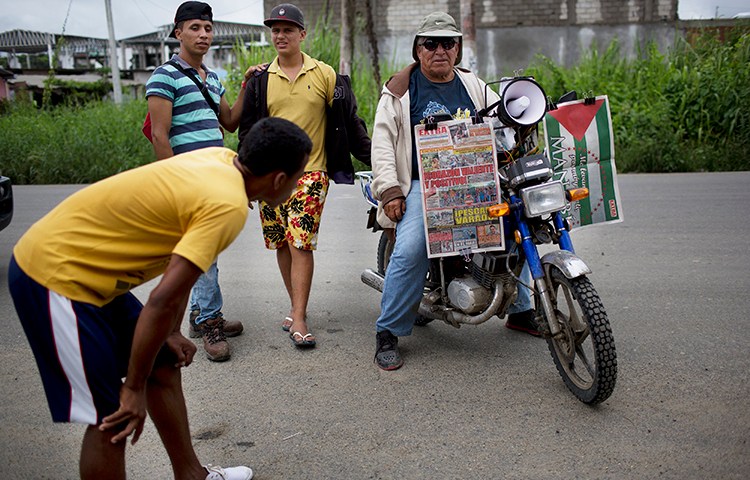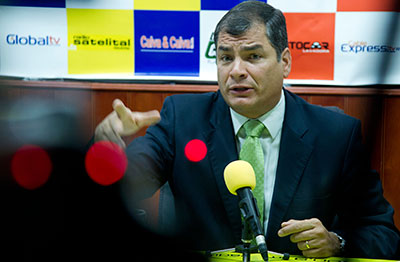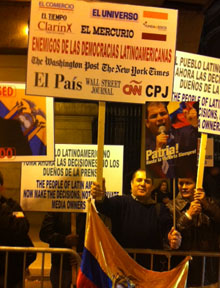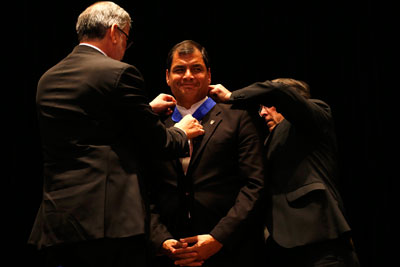
Correa’s legacy leaves a long road to recovery for Ecuador’s journalists
Since taking office in May, Ecuadoran President Lenín Moreno has pledged to end a decade-long battle between the government and the media. But several reporters and editors with whom CPJ spoke said that the anti-press campaign carried out by Moreno’s predecessor, former President Rafael Correa, has caused lasting damage to journalism in Ecuador.
How U.S. copyright law is being used to take down Correa’s critics in Ecuador
On December 30, César Ricaurte, the executive director of Fundamedios, received a copyright complaint with the potential to close his entire website. The complaint, filed on behalf of Ecuador’s communications regulator SECOM by a company called Ares Rights, ordered the independent press freedom group to remove an image of President Rafael Correa from its website,…
Press freedom group Fundamedios fears closure over Ecuadoran government pressure
Bogotá, Colombia, September 9, 2015–Fundamedios, Ecuador’s only independent press freedom organization, will likely be forced to close amid allegations by the government that it has transformed into a political organization critical of President Rafael Correa’s administration, according to news reports.

In Correa’s Ecuador, a bulletin on breakfast is routine
On September 11, 2012, the Ecuadoran government interrupted a morning newscast on the Teleamazonas TV station for an official bulletin. What could be so urgent? A coup d’etat? An earthquake? A cholera outbreak? It turned out the government sought to clarify what President Rafael Correa had for breakfast.

Correa supporters protest as Cabot winners celebrated
The Maria Moors Cabot Prizes, administered by Columbia University Graduate School of Journalism in recognition of journalistic contributions to Inter-American understanding, are the oldest international prizes in journalism. But Josh Friedman, director of the prizes, said this year marked the first time he remembered arriving at the awards ceremony to be greeted by protesters screaming…

As it backs Assange, Ecuador stifles expression at home
The Quito government’s decision to grant Julian Assange political asylum comes at a time when freedom of expression is under siege in Ecuador. President Rafael Correa’s press freedom record is among the very worst in the Americas, and providing asylum to the WikiLeaks founder won’t change the repressive conditions facing Ecuadoran journalists who want to…
CPJ to hold Ecuadoran authorities accountable for threats
New York, November 11, 2011–The Committee to Protect Journalists is alarmed by reported death threats against César Ricaurte, head of the Ecuadoran press freedom group Fundamedios, which follow a concerted campaign by local authorities to discredit the group and foster a climate of intimidation against independent media and local press freedom activists.
